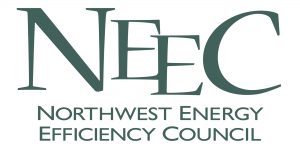Oregon Governor John Kitzhaber released a Draft 10 Year Energy Action Plan this month for public comment. The first sentence of his cover letter to the Plan says; “Energy is THE issue of our time – both globally and here in Oregon – and no single issue will have a greater impact on our state’s economy, environment and quality of life in the coming decade.” The Plan, according to the Governor’s letter, “…takes a practical approach to that challenge, focusing on specific initiatives that move the dial in the short term and can be scaled up over time.” The Draft Plan focuses on three main strategies;
1. Maximizing energy efficiency and conservation to meet 100 percent of new electricity growth.
2. Enhancing clean energy infrastructure development by removing finance and regulatory barriers.
3. Accelerating the market transition to a more efficient, cleaner transportation system.
The Governor intends for the plan to be a central component of his strategy in positioning Oregon as a competitive force in the global economy of the 21st Century. The public is encouraged to provide comment on the Plan by July 31st, sending comments to [email protected].
NEEC is very supportive of the Draft Plan’s strong commitment to energy efficiency as the “cornerstone” of Oregon’s energy policy. While many have believed the Power Council’s 6th Power Plan commitment to achieving 85% of load growth through energy efficiency, this Plan ups the ante to 100%. To achieve that the Plan recognizes the necessity for an all buildings strategy, but calls out the particularly significant challenge and opportunity for energy efficiency gains in commercial buildings. In particular, the Plan acknowledges the necessity to implement efforts that result in deeper, whole building energy retrofits. In recognition of the challenge, the Plan commits to a new “State Building Innovation Lab” which will help trigger public building leadership and help drive a larger market. The Plan recognizes that this effort will not just be a technical challenge but even more importantly require innovative approaches in capital financing and supportive public policy, including regulatory, frameworks.
NEEC will be submitting supportive comments on this Draft Plan. Early media reports indicate that some interested parties are expressing reservations about elements of the Plan, including the comment that the Plan has “too much efficiency”. As such, it is very important that the State hear from the energy efficiency business community that these goals, while ambitious, are good and that Oregon has private sector partners willing and able to help realize the vision of this Plan.
A series of briefings on the Plan are scheduled over the next few weeks. These sessions will be led by Margi Hoffman, the Governor’s Energy Policy Adviser. Dates and locations include;
Klamath Falls
Wednesday, July 18th 5:30pm-7:30pm
Location: Oregon Institute of Technology (OIT),
3201 Campus Drive, College Union Auditorium
Bend
Thursday, July 19th, 5:30pm-7:30pm
Location: Central Oregon Community College (COCC),
2600 NW College Way, Pioneer 201 Auditorium
Gresham
Friday, July 20th, 5:30-7:30pm
Location: Mt. Hood Community College (MHCC),
26000 SE Stark St., Visual Arts Theater (in back)
